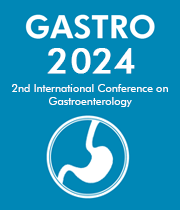Title : The Lumbee exception: A unique perspective on obesity and colon cancer correlations in an indigenous population
Abstract:
Colon cancer is the leading cause of cancer-related deaths worldwide, exhibiting varying incidence rates across different ethnic and racial groups. The Lumbee Indian population, native to North Carolina, represents a unique demographic group that, like many Indigenous communities, often faces disparities in healthcare access. The connection between obesity and colon cancer may be attributed to the reduction in adiponectin levels and the elevation in leptin levels. Leptin is responsible for moderating nutrient absorption in the gastrointestinal tract leading to cell growth and proliferation. Obesity reduces an anti-inflammatory adipokine (Adiponectin), which is known to reduce risk for cancer development [5]. Most reviews and meta-analyses indicated a positive correlation between body mass index (BMI) and colorectal cancer (CRC). In the case of obesity, the summarized relative risk estimates for gender and cancer sites showed an increase in CRC risk ranging between 19% and 41%. This retrospective study recruited data through slicer dicer within the slicer dicer tool in Epic Medical Record system. ICD10 diagnostic codes such as colon cancer and BMI values were used. Patients were also selected based on Lumberton, North Carolina zip codes such as 28358, 28359, and 28360. Additional population data included males and females between the ages of 40 to 100 years old. A chi-squared analysis was performed that suggested a different relationship for the Lumbee Indian population. The chi-squared value was 0.1152 with a p-value of 0.734351, which highlighted that there is no relationship between obesity and colon cancer for the Lumbee Indian population. This data suggested that, in the Lumbee population, there may be other factors that play a much larger role in this population developing colon cancer. The overall study emphasized the importance of further research into unique populations, such as the Lumbee Indian population, to understand and potentially intervene on modifiable risk factors for colon cancer. Through emphasizing key patient risk factors, outreach and education can be incorporated to individualize healthcare to reduce colon cancer.
Audience Take Away:
-
The audience will learn about the relationship between the incidence of colon cancer and obesity within the Lumbee Indian Population, the largest tribe in the United States east of the Mississippi River.
-
The pathophysiology of obesity as it relates to colon cancer.
-
Through emphasizing key patient risk factors, an outreach/education program can be incorporated to then individualize healthcare and reduce the overall incidence of colon cancer.
-
Highlight other factors that may be involved in affecting the risk of colon cancer



